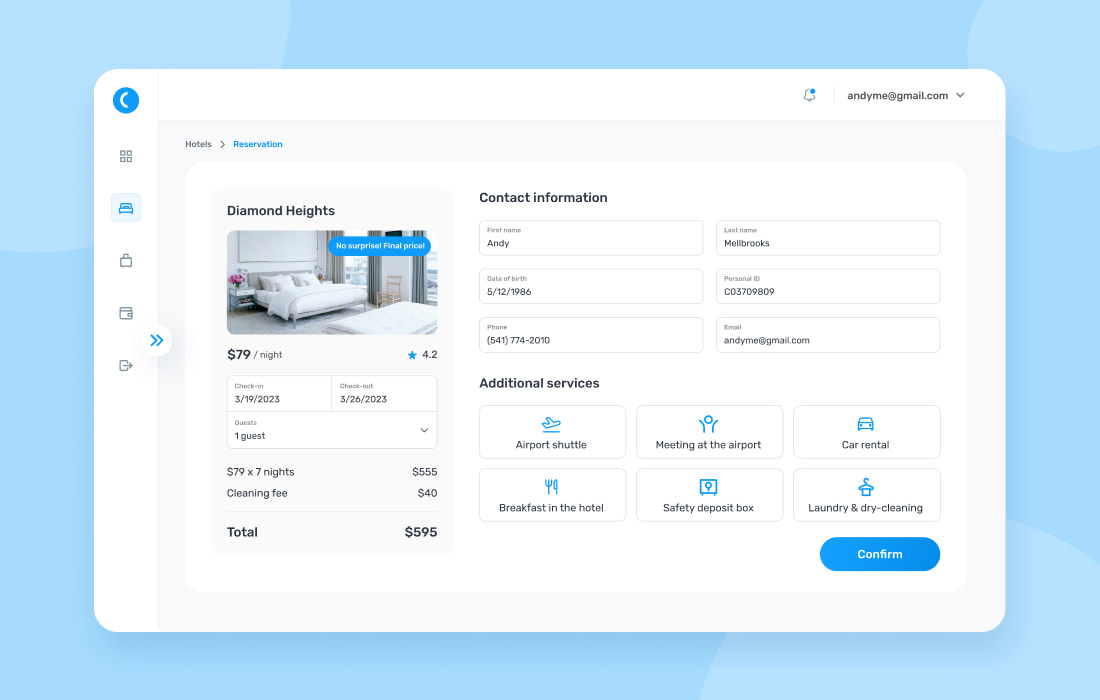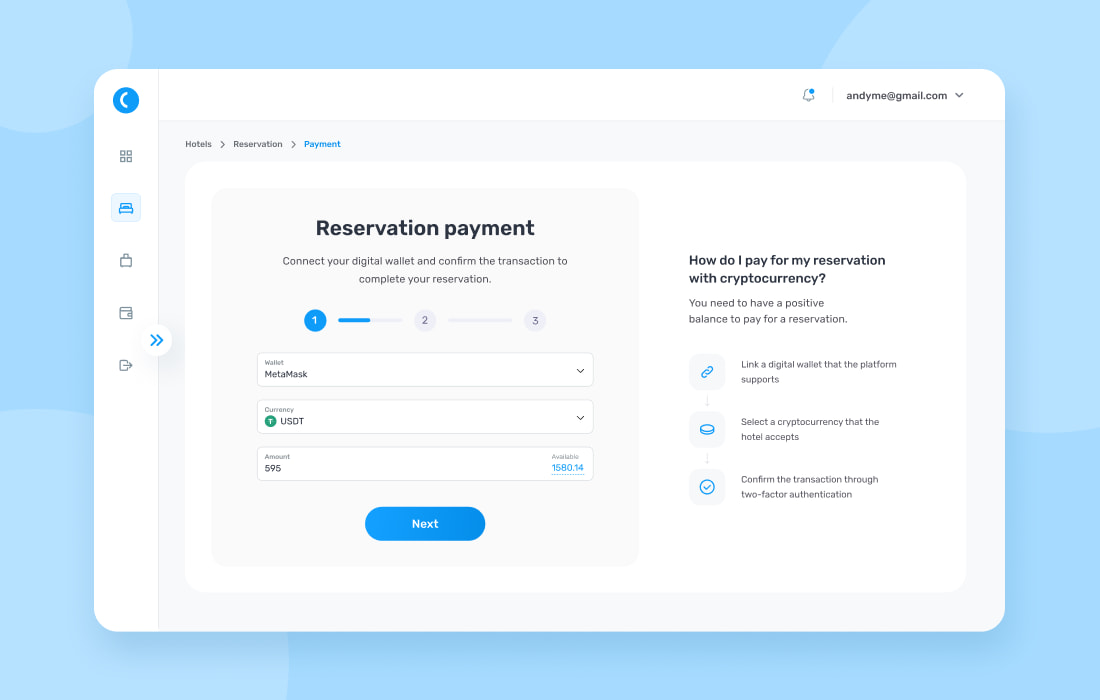The customer chose to protect their confidential information
A Blockchain Ecosystem for B2B and B2C Products

About the client
Andersen's customer was a European company with an extensive professional track record. The customer wanted to add Blockchain to their envisioned tourism software solution.
![[object Object] on the map](https://static.andersenlab.com/andersenlab/new-andersensite/bg-for-blocks/about-the-client/germany-desktop-2x.png)
Project overview
Andersen’s Blockchain development experts were entrusted with an ambitious task. The customer was a very experienced team; nevertheless, they needed assistance and resources to build a Blockchain-based ecosystem. The latter was supposed to provide a stable and secure platform for B2B and B2C leisure travel product sales and include its own Avalanche-based token and wallet.

Solution
The solution that the customer had envisioned presupposed the application of Blockchain technology to the international travel industry. It was expected that, via the platform, tourism partners could efficiently trade and purchase a variety of services, ranging from hotel rooms and rental cars to a cup of coffee during a flight. The customer wanted this functionality to be available via a set of simplified and quick processes. In addition, the platform was planned to enable travel partners to find all the information they would need to effectively sell travel products.
Thus, the target audience of the IT project is B2B players in the tourism and travel industry – i.e., travel and tourism agencies and airlines. As for the end-users – tourists who buy items via the platform – they represent the B2C component.
The resulting solution can be defined as a PoS Blockchain network with its own Avalanche-based token and wallet. The network includes numerous configurable parameters and is a self-run solution sustained by voting validators.
The main properties of this Blockchain platform are as follows:
- Since the platform is based on Blockchain, its functioning is enabled by validators. The validators are, essentially, businesses active in the industry. Accepting new validators by voting is up to them. They are equal, and their network stakes play no part when it comes to rewards or voting;
- In addition to the network, we have integrated the product with wallet apps and a block explorer;
- Andersen's team has added a KYC verification process to pass and a verification flag of users' wallets stored on-chain;
- The network offers lucrative dApp hosting opportunities to the industry;
- Also, we have added a direct bridge to Avalanche and other smart contract platforms.

Speaking about the token monetization issues, the token fees are distributed in this fashion: some tokens burn and are taken out of circulation, some tokens go to the validators, and some of them are sent to a dedicated pool of tokens serving as a sponsoring foundation for dApp developers. Another crucial point is consensus. As in other Blockchain-based projects, the validators are authorized to vote. Their decisions shape the future of the token and the ecosystem as a whole. Namely, they can alter the network standards: add new validators, modify basic fees, etc. One needs to own a sufficient number of tokens to have the right to vote.
Project results
- The platform can be monetized by Avalanche-based tokens as a digital asset that is used to pay for tickets and services provided by tourist agencies;
- The price of the tokens is expected to grow significantly;
- Future validators – i.e., travel agencies – are able to buy and freeze a certain number of tokens to join the platform.
Let's talk about your IT needs
What happens next?
An expert contacts you after having analyzed your requirements;
If needed, we sign an NDA to ensure the highest privacy level;
We submit a comprehensive project proposal with estimates, timelines, CVs, etc.
Customers who trust us


